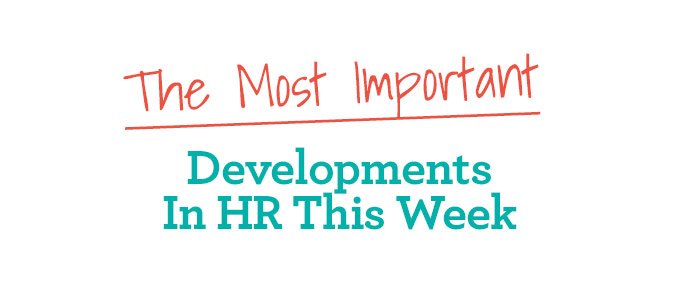THE MOST IMPORTANT DEVELOPMENTS IN HR FOR THE WEEK OF October 13th
Don’t Get Too Comfortable at That Desk
New office designs are far less generic, incorporating different kinds of spaces that often counter the premise of packing more workers into less space. Breaking down walls to bring people together is still considered good, as are “team spaces,” standing tables, comfortable couches and movable walls. But quiet and/or privacy is also being incorporated into “isolation rooms,” soundproof phone booths and/or lounges where technology is forbidden. New York Times
Two-thirds of supervisors polled in the U.S. believe their organizations have effective policies and procedures for recruiting, training and accommodating workers with disabilities. But many companies remain unclear about where to find qualified candidates, underutilize effective methods such as job sharing and partnering with disability organizations and/or provide inconsistent support for such employees. Only 28 percent of organizations polled have disability hiring goals, while 60 percent have hiring goals regarding other types of diversity. Washington Post and Lime Connect
Data From 3.5 Million Employees Shows How Innovation Really Works
Research shows human innovation, i.e., “idea management,” is a science that can be a managed by technology in a process that works like sales and marketing pipelines. The study used a tool called Spigit that collects ideas, votes and feedback, helps develop some into corporate innovations, then tracks the results. Success is dependent on many diverse participants, regularly produced ideas and significant human engagement in the evaluation process. Harvard Business Review
Science Says IQ May Be the Best Predictor of Your Potential to Excel at Work — and No One Wants to Hear it
A growing body of research suggests general cognitive ability may be the best predictor of job performance. IQ dictates problem-solving abilities, spatial manipulation, language acquisition and “how likely an individual is to be able to learn and master the requisite knowledge and skill.” But analysts report employers are generally more interested in employees’ social skills. Business Insider
Why Jobs of the Future Won’t Feel Like Work
We’ve all heard that robots are going to take our jobs — but what can we do about it? Innovation expert David Lee says that we should start designing jobs that unlock our hidden talents and passions — the things we spend our weekends doing — to keep us relevant in the age of robotics. TED Talks









